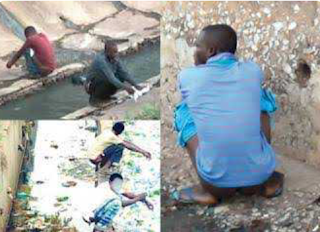The United Nations General Assembly through resolution (A/RES/67/291) declared 19th November every year as World Toilet Day, and this year 2021 is not an exception for every advocate of WASH (water, sanitation and hygiene) professionals and civil society actors working in this thematic area all over the world are joining voices together in solidarity on this day to raise the much needed global awareness on toilets, sanitation and personal hygiene. Toilet facilities are very key important component of a building and also very necessary department for man in regards to performing the inevitable call of human nature (excretion). Every living man excretes and passes out waste products (faeces) as part of the human body metabolism process for survival. This important aspect of human function is central to human existence because without excretion of faeces, no living soul can survive and function efficiently and effectively in carrying out his or her daily activities. Hence the facilities for the usage and passage of waste products (faeces) by man is very key and should not be overlooked by the government authorities concerned and human beings alike. In underdeveloped and developing countries of the world, poor toilet facilities are more prevalent in low-income societies with a large number of poor people and households being unable to build good toilet facilities in their homes due to poverty, and these groups of people are more vulnerable and more likely to contact diseases because of poor hygiene practices, vulnerability and open defecations as a result of lack of access to decent toilet facilities.
In Nigeria, studies have shown that over 100,000 children under the age of 5 die every year due to water and sanitation related diseases like diarrhoea, dysentery and cholera. Good hygiene can prevent diarrhoea, dysentery and cholera, slows down the spread of fatal contagious diseases like corona virus and Ebola. Therefore the importance of sustained hygiene practices like hand washing with soap and water and the use of clean toilets at all times should be encouraged. The issue of poor toilet facilities has poses great challenges to most inhabitants and dwellers in communities around the world. Most residential houses in urban slums, ghettos and rural communities around the world do not have access to decent toilet facilities. Educational institutions, government establishments and public places are not left out in this.
In most poorer countries of the world, public toilet facilities are still lacking. In some cases the availability of these toilet facilities in most homes and public places are constructed on makeshift buildings with very unhealthy and unhygienic conditions. Hence the practice of open defecation by the inhabitants of these settlements are the order of the day. In educational settings, studies have shown that lack of decent toilet facilities can significantly drop girl-child school turnout and enrollment in poorer countries of the world.
According to the latest WHO/UNICEF joint monitoring programme (JMP) report, progress on sanitation and hygiene is badly off track. For the 3.6 billion people currently without safely managed sanitation, it's clear there will be no sustainable future without toilets. Governments must work four times faster and ensure toilets for all by 2030. In the state of world's sanitation report, WHO and UNICEF are calling on government and their partners to urgently transform sanitation for better health, environments, economies and societies.
In conclusion, as a very strong advocate of WASH and goal 6 (clean water and sanitation) of the sustainable development goals (SDGs), l call on all health practitioners, civil society actors and WASH advocates from all over the world to join hands together to take actions both online and offline and amplify their voices to sensitize citizens most especially the vulnerables in rural communities and in urban slums on the dangers of open defecations to humanity and the environment. And also to urge government authorities, global leaders and duty bearers to build enough public toilets for public use to stem the tide of open defecations and water related diseases all over the world as we mark today's world toilet day.
ABOUT THE AUTHOR












Comments
Post a Comment